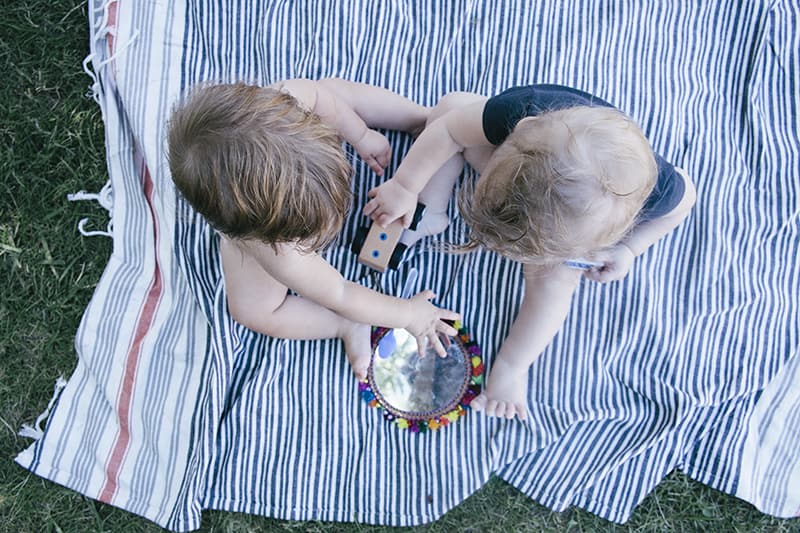
How To Help Foster Childhood Friendships
Written by Katherine Oakes
Photography by Photographed by James Kicinski-McCoy
The care and keeping of friends is tough business for both adults and children. Instinctively, parents are quick to get involved to help guide their kids through this complicated process and watch them blossom into happy, fulfilled people with sustained and meaningful relationships (fingers crossed!). However, helping your child through their formative years is an awkward dance of offering both space and support. As Fred Frankel, psychologist and author of the book Friends Forever, states, “Many psychologists agree that having a best friend is one of the most significant social outcomes of childhood.” No pressure, right? Below are some tips on how to help make this happen.
Be A Role Model of Good Friendship. It’s no secret that kids are more observant and aware than we give them credit for. Much to their chagrin, this happens without parents realizing what kind of behavior and habits they have been modeling until their little ones start to mimic them. Take advantage of this by using it as an opportunity to model what a good friend looks like. The old adage, “to have a friend is to be one first” suggests the idea that empathy and consideration, two pillars of a good relationship, aren’t just qualities but learned skills that don’t always come naturally to younger kids. In the early years, children are more prone to think of themselves first and can greatly benefit from adults modeling kindness and compassion towards others. Do this by making simple gestures, such as preparing or delivering food to a sick friend, baking cookies for a new neighbor, or making a birthday card for a grandparent. Better yet, have your child think of something nice they can do for a friend or family member.
Talk To Them About Friendship. Navigating the choppy and murky waters of playground politics can be scary, confusing, and overwhelming for most kids. No matter how comfortable they are in social settings, other children’s reactions and behavior as playmates can most certainly throw them off balance. Kids are sensitive and can be especially so with their peers, therefore your support and conversations as a parent truly matter. Discussing how to deal with rejections is an important talking point that can help teach kids the highs and lows of relationships and can give them the support they need to bounce back from tough situations. For younger kids, using books and stories as an example of healthy relationships can be a good starting point.
Discover Their Interests. Perhaps the simplest way to support your child in making and keeping friends is to provide them with enough space to do so. Whether it be intentionally or not, parents tend to influence their own socialization habits onto their children. Take a step back and be attentive to which situations your child gravitates towards, where they feel most comfortable, and in which settings they interact best with others. Your idea of how your child should socialize and what type of activities they should enjoy may not exactly resonate with him or her. By encouraging them to pursue what they love, whether it’s sports, an extracurricular activity, or even just picking their favorite park, they can naturally form friendships with other kids who enjoy the same things—and hopefully, it will last.
Share this story




